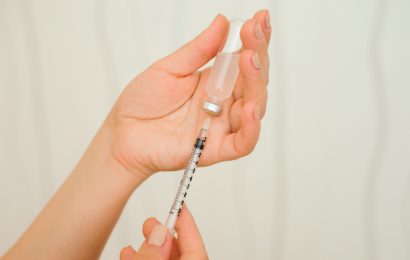Generic Lyrica Approved
Pharmaceutical company Lupin has received approval from the US Food and Drug Administration (FDA) to market a generic version of the pain medicine Lyrica (pregabalin) in the United States. Lyrica is indicated to treat the pain associated with diabetic neuropathy, among other conditions. Capsules will be available in the same strengths as Lyrica. For more information, see this piece from MedPage Today.
Secondhand Smoke Linked to Type 2
In other news, a recent report from The Endocrine Society’s 94th Annual Meeting in Houston indicates that exposure to secondhand smoke is linked with Type 2 diabetes and obesity.
Previous research has shown a link between smoking and Type 2 diabetes, even though smokers are typically thinner than nonsmokers (obesity is a risk factor for Type 2).
To determine whether secondhand smoke is associated with an increased risk of the condition, researchers at Charles R. Drew University looked at data from 6,300 people who participated in the National Health and Nutrition Examination Survey (NHANES) from 2001 to 2006.
The investigators defined smokers, who comprised 25% of the sample, as people who reported that they smoked cigarettes and who had a blood level of cotinine — a metabolite of nicotine that indicates a person’s exposure to tobacco smoke — of greater than 3 nanograms per milliliter (ng/ml). Nonsmokers, who comprised 41% of the sample, were defined as those who said they did not smoke and who had a blood cotinine level under 0.05 ng/ml. And the 34% of the sample who answered “no” to the question “do you smoke cigarettes” but who had a blood cotinine level greater than 0.05 ng/ml were defined as secondhand smokers.
After adjusting for various factors such as age, sex, and physical activity level, the researchers found that secondhand smokers had higher insulin resistance, higher fasting blood glucose levels, higher body-mass index, and higher A1C (a measure of blood glucose control over the previous 2–3 months) than nonsmokers. They also had higher rates of Type 2 diabetes, comparable to rates of smokers as opposed to nonsmokers.
“More effort needs to be made to reduce exposure of individuals to secondhand smoke,” noted study co-author Theodore C. Friedman, MD, PhD.
The authors indicate that further research is necessary to determine whether cigarette smoking is a cause of Type 2 diabetes.
For more information, see the press release from The Endocrine Society. And for tips on reducing your exposure to secondhand smoke, see this page from the Mayo Clinic.




